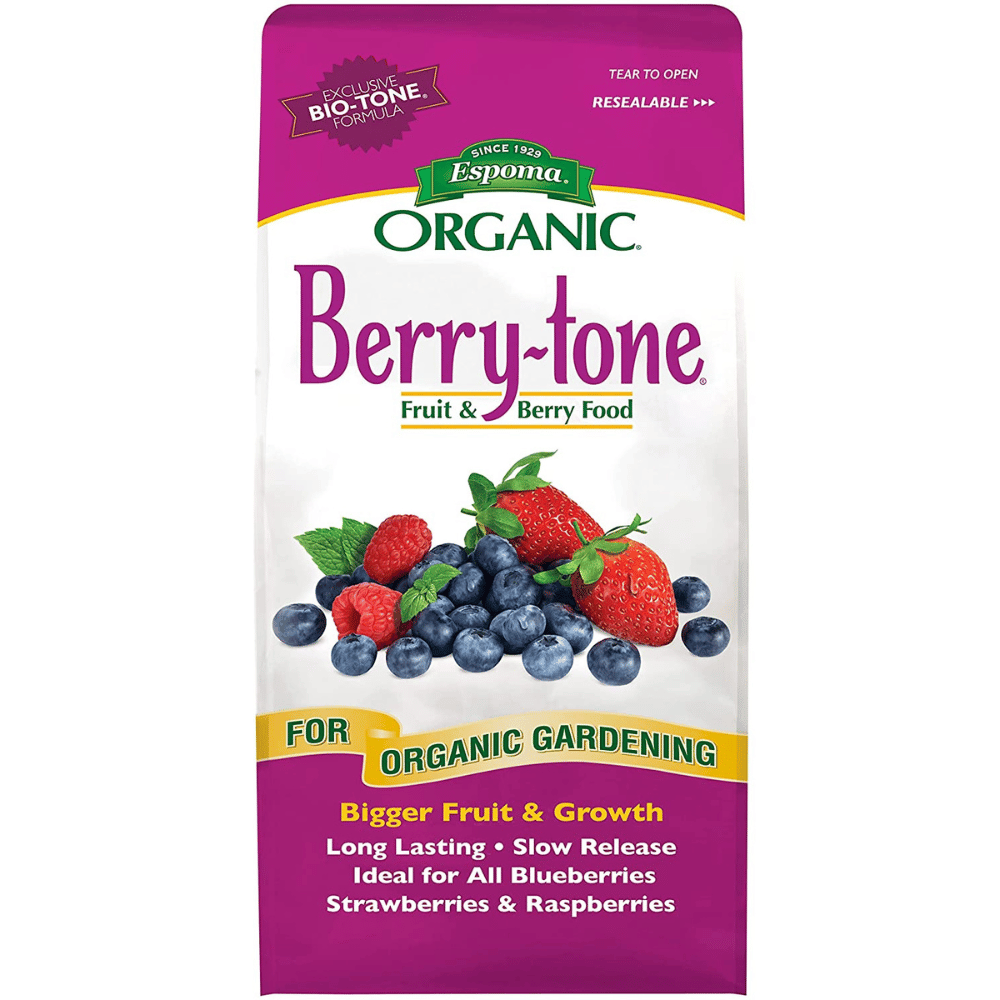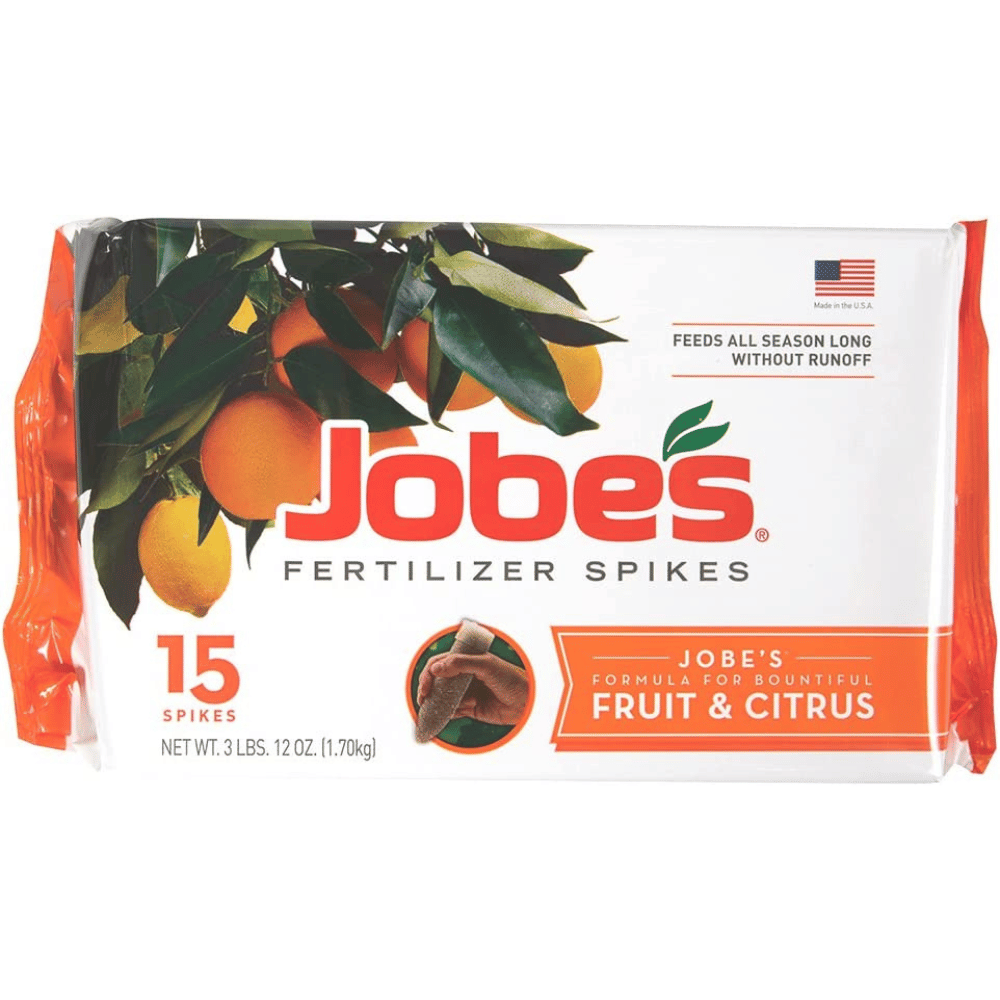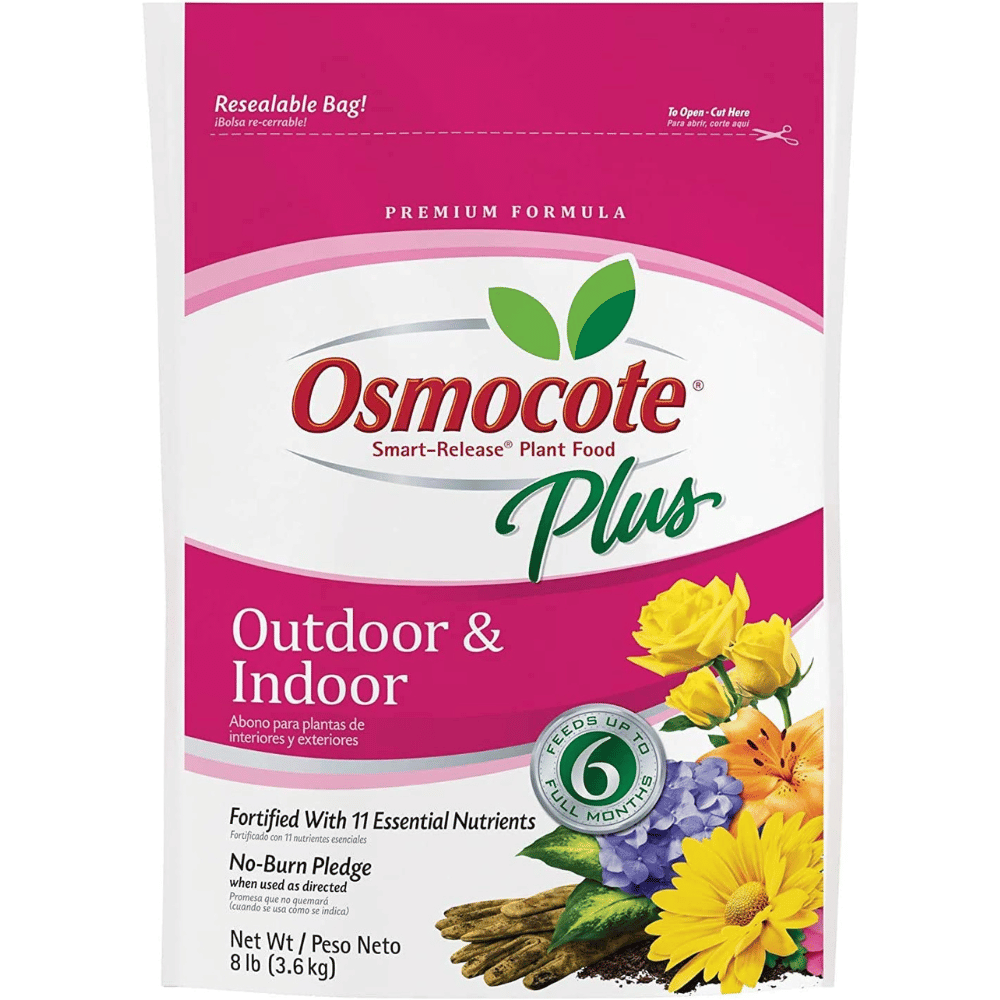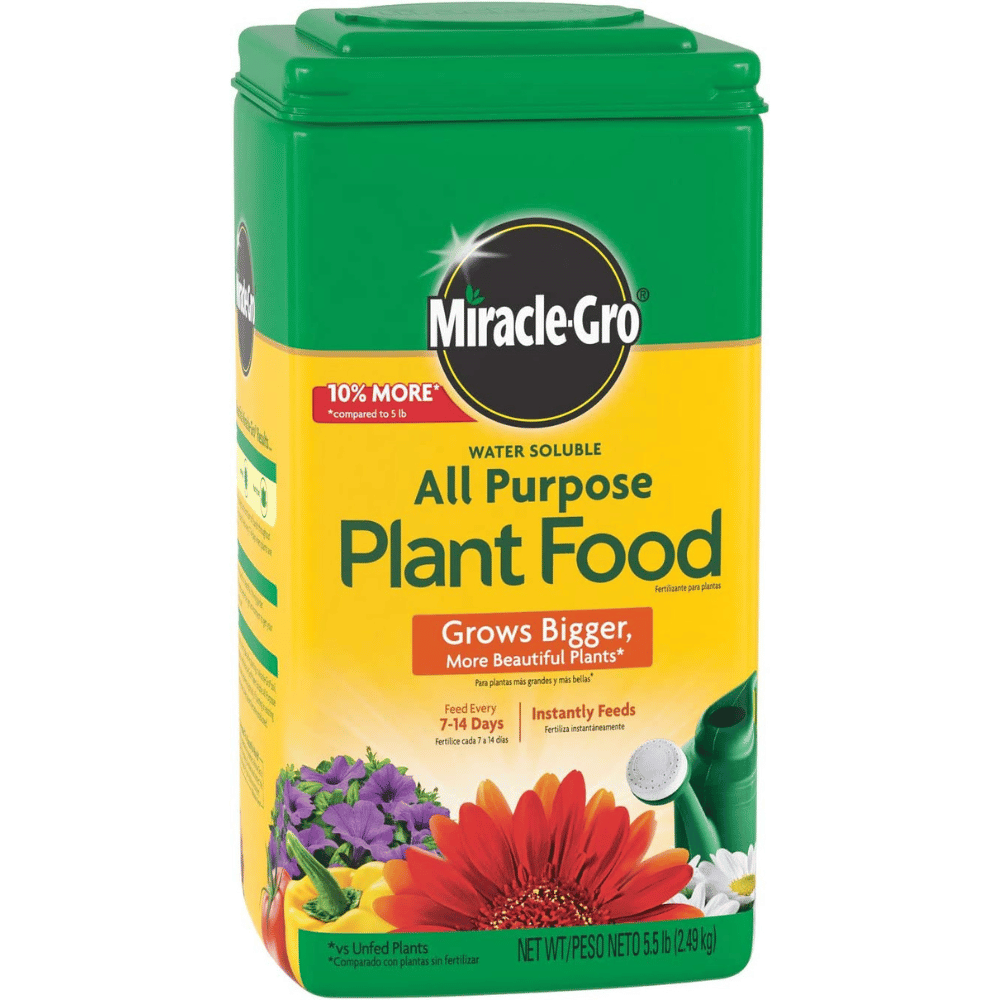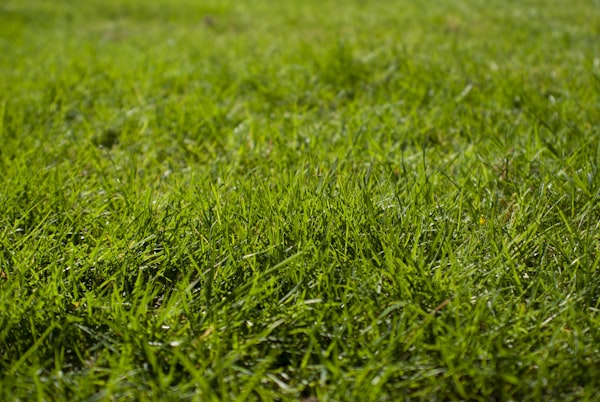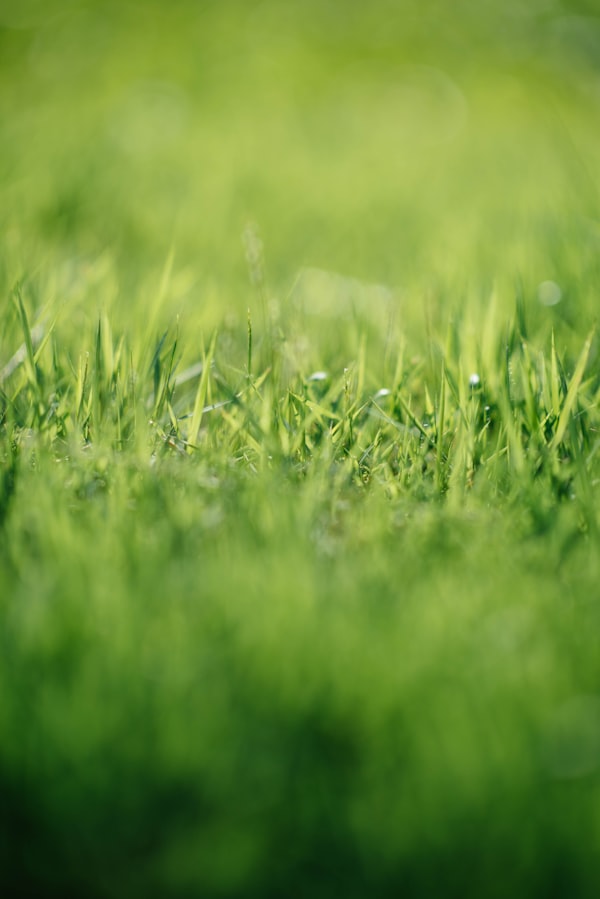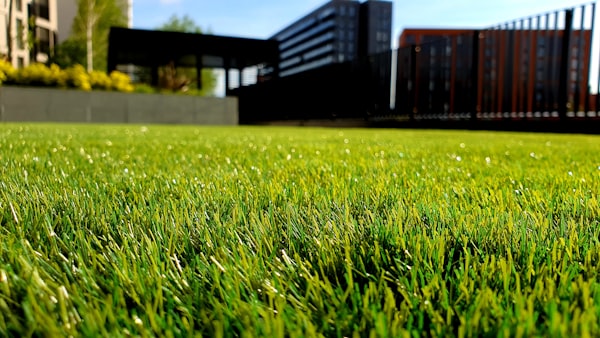This is where fertilizers come in, providing the essential nutrients to help your strawberries grow strong and produce the best crop possible. In this guide, we’ll discuss the best fertilizers for strawberries, and what to look for when choosing the right fertilizer for your plants. Read to the end for a Free Recipe!
What are the Nutrient Requirements of Strawberries?
Strawberries require three essential macronutrients: nitrogen (N), phosphorus (P), and potassium (K) to grow and produce a good crop. Nitrogen is essential for plant growth, phosphorus helps with root development, and potassium helps to regulate water uptake and contributes to overall plant health.
In addition to the macronutrients, strawberries also require smaller amounts of secondary macronutrients like calcium, magnesium and sulfur and micronutrients such as boron, iron, and zinc.
How to Choose the Best Fertilizer for Strawberries?
When choosing the best fertilizer for strawberries, there are several factors to consider, including:
Nutrient Requirements: Consider the specific nutrient requirements of strawberries, as discussed above, and choose a fertilizer that provides the right balance of macronutrients and micronutrients.
Soil Type: Consider the type of soil you have in your garden, as this will impact the rate at which the fertilizer is absorbed. For example, sandy soil will absorb nutrients more quickly than clay soil.
Fertilizer Type: Consider the type of fertilizer you want to use, based on your personal preferences and gardening goals. Some gardeners prefer organic fertilizers, while others prefer synthetic fertilizers for their convenience and quick results.
What are the different types of Strawberry Fertilizer?
There are a few different types of fertilizer that you can use on your strawberry plants, each with their own set of benefits. Some of the most common include:
- Chemical fertilizers
- Organic fertilizers
- Slow-release fertilizers
Chemical Fertilizers
Chemical fertilizers are made up of synthetic nutrients that are designed to quickly provide your plants with the nutrients they need. They are typically easy to find and relatively inexpensive, making them a popular choice among strawberry growers. Some common types of chemical fertilizers include nitrogen, phosphorus, and potassium (NPK) fertilizers.
However, it's important to note that while chemical fertilizers can provide your plants with a quick boost of nutrients, they can also be harsh on the soil and may not be ideal for long-term use. Overuse of chemical fertilizers can also lead to soil imbalances, which can harm your plants in the long run.
Organic Fertilizers
Organic fertilizers are made up of natural materials, such as compost, manures, and bone meal. Unlike chemical fertilizers, organic fertilizers release their nutrients slowly over time, providing your plants with a steady stream of nutrition. They are also much gentler on the soil and help to improve soil structure and fertility over time.
Some popular organic fertilizers for strawberries include:
- Compost
- Manure
- Bone meal
- Blood meal
- Alfalfa meal
Slow-Release Fertilizers
Slow-release fertilizers are fertilizers that slowly releases their nutrients into the soil over time, providing your plants with a steady stream of nutrition. They are typically made up of small pellets that are coated with a layer of slow-release fertilizer.
This kind of fertilizer is ideal for strawberry plants because it helps to avoid over-fertilization and helps to maintain a consistent level of nutrients in the soil. Some common types of slow-release fertilizers include:
- Sulfur-coated urea
- Polymer-coated fertilizers
- Controlled-release fertilizers
How to Apply Fertilizer to Strawberries?
Once you've selected the best fertilizer for your strawberries, it's important to know how to apply it correctly for maximum results. Here are some steps to help you get started:
1. Determine the right time to fertilize
The best time to fertilize your strawberries is in the early spring before the plants begin to flower. This will ensure that the plants have enough energy to produce large, sweet strawberries. If you live in a climate with a longer growing season, you can also fertilize again in mid-summer.
2. Prepare the soil
Before you fertilize your strawberries, it's important to prepare the soil. Remove any weeds or debris, and loosen the soil to a depth of about 6 inches. If the soil is compacted, add organic matter such as compost or well-rotted manure to help improve its structure.
3. Apply fertilizer evenly
Once the soil is prepared, it's time to apply the fertilizer. For best results, spread the fertilizer evenly over the entire planting area, taking care not to let it come into contact with the plants' leaves or stems. If you're using a granular fertilizer, use a spreader to ensure even coverage. If you're using a liquid fertilizer, use a watering can or hose-end sprayer to apply it.
4. Water the soil
After you've applied the fertilizer, it's important to water the soil thoroughly. This will help to activate the fertilizer and distribute it evenly throughout the soil. Make sure to water deeply enough to reach the roots of the plants.
5. Repeat the process
Depending on the fertilizer you're using, you may need to repeat the process every 4 to 6 weeks. Be sure to follow the manufacturer's instructions for the best results.
6. Monitor plant growth
As your strawberries grow, be sure to monitor their progress. If you notice any signs of yellowing or stunted growth, it may be a sign that you need to fertilize again. Regular monitoring will help you keep your plants healthy and productive.
7. Consider using a soil test
Finally, consider using a soil test to determine the nutrient levels in your soil. This will help you determine the right type and amount of fertilizer to use, as well as how often to apply it.
By following these simple steps, you can ensure that your strawberries receive the right amount of fertilizer to help them grow strong and healthy. With the right care, you'll be able to enjoy a bountiful harvest of sweet, juicy strawberries in no time!
How We Choose the Best
We understand the importance of having healthy and bountiful strawberry plants. That's why we put in the effort to choose the best fertilizer for our customers. Our selection process was thorough and based on a number of factors, including customer reviews and industry expert recommendations. We analyzed customer feedback and took note of their experiences with various fertilizers for strawberries. We paid close attention to their plants' growth, fruit production, and overall health. We also looked at the ingredients in each fertilizer and their effectiveness in promoting healthy plant growth. Based on this research, we selected the best fertilizers for strawberries that received the most positive feedback from customers. We are confident that these fertilizers will help our customers grow strong and healthy plants with abundant fruit production.
Espoma Organic Berry-Tone
Why We Love It
Use for Espoma Organic Berry-Tone is the best fertilizer to use to achieve the best strawberries. This balanced fertilizer contains 4 lb. of nutrients specifically designed to feed and nourish all types of berries. With a NPK ratio of 4-3-4, not only does it help promote a bountiful harvest, but it also helps with root growth and disease prevention. The application of this fertilizer can be done either directly in the soil where you are planting your strawberry patch or by using a watering can to sprinkle around the plants. With regular usage, you will be able to enjoy delicious, sweet strawberries from your own garden!
Jobe's Fertilizer Spikes
Why We Love It
There are several reasons why Jobe's Organics Fruit & Citrus Fertilizer Spikes have become a popular choice among gardeners. Firstly, they're made with 100% organic ingredients, which means that they're safe for both your plants and the environment. This is especially important for those who want to avoid using harsh chemicals in their gardens. Secondly, they are incredibly convenient to use. Simply insert them into the soil near the roots of your plants, and you're done! There's no need to worry about measuring or mixing, which makes fertilizing your plants a breeze. Additionally, Jobe's fertilizer are long-lasting, which means that you won't need to reapply them as often as you would with other kinds of fertilizer. Finally, they provide a steady and controlled release of nutrients over time, which helps to promote healthy growth and fruit production in your plants. Overall, Jobe's Spikes are an excellent choice for anyone looking for an easy, safe, and effective way to fertilize their fruit and citrus trees.
Osmocote Smart-Release Plant Food
Why We Love It
Osmocote Smart-Release Plant Food is a popular choice among gardeners due to its many benefits. Firstly, it provides a comprehensive and balanced range of essential nutrients that are needed for strong and healthy plant growth. This includes important micronutrients like iron, manganese, and zinc, which are often missing from other kinds of fertilizer. Secondly, Osmocote is incredibly easy to use. Simply sprinkle it on top of the soil and water your plants, and you're done! There's no need to worry about measuring or mixing, which makes fertilizing your plants a breeze. Additionally, it is long-lasting, which means that you won't need to reapply it as often as you would with other kinds of fertilizer. The controlled-release formula ensures a steady supply of nutrients over time, which helps to promote healthy growth and fruit production in your plants. Finally, Osmocote is safe for both your plants and the environment, as it contains no harmful chemicals or synthetic ingredients. Overall, it is an excellent choice for anyone looking for an easy, safe, and effective way to fertilize their plants.
Miracle-Gro Plant Food
Why We Love It
Miracle-Gro is a popular choice among gardeners due to its versatility and effectiveness. Firstly, it can be used on a wide range of plants, including flowers, vegetables, trees, and shrubs, making it an ideal choice for those with a diverse garden. Secondly, it's incredibly easy to use. Simply dissolve the recommended amount in water, and use it to water your plants. There's no need to worry about measuring or mixing, which makes fertilizing your plants a breeze. Additionally, Miracle-Gro provides quick results, as the nutrients are absorbed by the plants through the roots and leaves. The fast-acting formula helps to promote healthy growth and vibrant blooms in your plants. Finally, Miracle-Gro is safe for both your plants and the environment, as it contains no harmful chemicals or synthetic ingredients. Overall, Miracle-Gro is an excellent choice for anyone looking for a versatile, easy, and effective way to fertilize their plants.
FAQ for Fertilizing Strawberry Plants
Welcome to our FAQ section! Here, we aim to answer some of the most commonly asked questions about strawberries and fertilizing them. Whether you're a seasoned gardener or just starting out, this section is designed to provide you with valuable information and guidance. We understand that growing strawberries can be a challenging process, and that's why we've put together this FAQ to help make the process easier and more enjoyable. From choosing the right fertilizer to applying it correctly, this section is your one-stop-shop for all things strawberry fertilization.
What are the benefits of using fertilizer for strawberries?
Fertilizer is an essential ingredient for growing strawberries, as it helps the plants to grow healthy and produce high yields. There are several benefits of using fertilizer for strawberries, including:
- Enhanced root development: A good quality fertilizer will contain the essential nutrients that strawberries need for healthy root development, which is crucial for a strong and productive plant.
- Improved flower and fruit production: Fertilizer helps to increase the number of flowers and fruits produced by the strawberry plant, making it more productive and increasing your yield.
- Better overall plant health: Fertilizer provides the essential nutrients that strawberries need to grow and thrive, which leads to improved overall plant health, including strong stems and leaves.
- Increased resistance to pests and diseases: A healthy plant is better equipped to resist pests and diseases, which can cause significant damage to your strawberry plants and reduce yields.
What should you look for in a fertilizer for strawberries?
When selecting a fertilizer for strawberries, there are several key factors to consider, including:
- Nutrient balance: The best fertilizer for strawberries will contain the right balance of essential nutrients, including nitrogen, phosphorus, and potassium, as well as other micronutrients.
- Organic vs. synthetic: Organic fertilizers are made from natural materials and are considered better for the environment, while synthetic fertilizers are often more cost-effective. Choose the option that works best for you, based on your personal preferences and budget.
- Release rate: Some fertilizers are designed to release their nutrients slowly over time, while others release them more quickly. Consider the release rate when selecting a fertilizer, as this will impact how often you need to apply it and the overall effectiveness of the fertilizer.
- Soil type: Different soils have different nutrient requirements, so consider your soil type when selecting a fertilizer. If you have poor soil, a fertilizer that contains more phosphorus and potassium may be a better choice, while soils that are rich in nitrogen may benefit from a fertilizer that contains more phosphorus and potassium.
What are the best types of fertilizer for strawberries?
There are several types of fertilizer that are great for strawberries, including organic options like Jobe's Organics Fruit & Citrus Fertilizer Spikes, and synthetic options like Osmocote Smart-Release Plant Food and Miracle-Gro Water Soluble All Purpose Plant Food. Each type of fertilizer has its own unique benefits and drawbacks, and the best option for you will depend on your specific needs and preferences. If you're looking for an organic option, Jobe's Organics Fruit & Citrus Fertilizer Spikes are an excellent choice, as they provide a slow and steady release of nutrients, which helps to promote healthy growth in your strawberries. On the other hand, if you're looking for a synthetic option that's fast-acting, Miracle-Gro Water Soluble All Purpose Plant Food is a great choice. It's easy to use, and provides quick results, helping to promote healthy growth and vibrant blooms in your strawberries.
When is the best time to fertilize strawberries?
The best time to fertilize strawberries is during the growing season, which typically runs from early spring to fall. During this time, strawberries are actively growing and producing fruit, and they need a steady supply of nutrients to support their growth. It's important to fertilize your strawberries regularly, and to adjust the frequency of fertilization based on the specific needs of your plants. For example, you may need to fertilize more frequently during periods of hot, dry weather, or when your strawberries are producing a large crop of fruit.
How much fertilizer should I use for my strawberries?
The amount of fertilizer you should use for your strawberries will depend on several factors, including the type of fertilizer you're using, the size of your garden, and the specific needs of your strawberries. Always follow the instructions on the fertilizer packaging, and adjust the amount of fertilizer you use based on your own unique needs. It's important not to over-fertilize your strawberries, as this can lead to excessive growth and reduced yields.
Can I use the same fertilizer for all my plants, including strawberries?
While it's possible to use the same fertilizer for all your plants, it's generally not recommended. Different plants have different nutrient needs, and using a fertilizer that's designed specifically for strawberries is the best way to ensure that your strawberries are getting the nutrients they need to thrive. If you have a diverse garden, it's a good idea to use a variety of fertilizers, each designed for a specific type of plant.
Is it better to use liquid or granular fertilizer for strawberries?
Both liquid and granular fertilizers have their own unique benefits and drawbacks, and the best option for you will depend on your specific needs and preferences. Liquid fertilizers are typically easy to use, as they can be easily mixed with water and applied directly to your strawberries. They're also fast-acting, and provide quick results, helping to promote healthy growth and vibrant blooms. Granular fertilizers, on the other hand, are typically slower-acting, and provide a more steady release of nutrients, which helps to promote healthy growth in your strawberries over time.
How often should I fertilize my strawberries?
Fertilizing strawberries is an important part of their care and maintenance, as it helps to promote healthy growth and strong yields. The frequency with which you fertilize your strawberries will depend on several factors, including the type of fertilizer you are using, the growth stage of your plants, and environmental conditions such as temperature and rainfall. As a general rule, it is recommended to fertilize strawberries every 4-6 weeks during the growing season, using a balanced, slow-release fertilizer.
Can I use chemical fertilizers on my strawberries?
Chemical fertilizers can be used on strawberries, but it is important to choose a product that is specifically formulated for fruiting plants and contains the right balance of nutrients to support healthy growth and fruit production. Many chemical fertilizers are high in nitrogen, which can promote lush foliage growth at the expense of fruit production. Slow-release fertilizers, such as those made from organic materials, are generally a better choice for strawberries as they provide a more consistent supply of nutrients over time and are less likely to burn delicate root systems. When using chemical fertilizers, it is important to follow the manufacturer's instructions carefully and avoid applying excessive amounts, which can have a negative impact on soil health and plant growth.
Can I use compost on my strawberries?
Yes, compost is an excellent source of organic matter and nutrients for strawberries, and can be used to improve soil health and promote healthy growth. To use compost on your strawberries, simply spread a 2-3 inch layer of compost over the soil around the base of the plants and gently incorporate it into the soil. Compost can be added any time during the growing season, but it is especially beneficial when added in the spring just before new growth begins. Compost is a slow-release fertilizer, so it will not provide an immediate boost of nutrients, but over time it will help to build a rich and fertile soil environment that will support healthy growth and strong yields.
Bonus Recipe - Strawberry Sorbet
Ingredients:
- 2 lbs. fresh strawberries, hulled and sliced
- 1 cup sugar
- 1 cup water
- 2 tbsp. fresh lemon juice
- Pinch of salt
Instructions:
- In a medium saucepan, combine sugar and water and heat over medium heat until sugar is dissolved. Remove from heat and let it cool.
- In a blender or food processor, puree the strawberries until smooth.
- Add the sugar syrup, lemon juice, and salt to the pureed strawberries and blend until well combined.
- Pour the mixture into a shallow container and freeze for 2 hours.
- After 2 hours, use a fork to break up any ice crystals that may have formed.
- Return the mixture to the blender or food processor and blend until smooth.
- Pour the mixture back into the shallow container and freeze for another 2 hours.
- Repeat step 6 and 7 two more times, or until the sorbet is frozen solid.
- Scoop the sorbet into individual serving dishes and serve immediately.
Enjoy this refreshing and fruity treat on a warm summer day!
Conclusion
In conclusion, the right fertilizer can make all the difference in your strawberry plants' growth and fruit production. By selecting the best fertilizer, you can ensure that your plants receive the proper nutrients they need to thrive. This, in turn, will lead to a more abundant and delicious strawberry harvest. So, why settle for anything less than the best? Feed your plants the right way and get the best results. With a bountiful crop of ripe strawberries, you'll be able to enjoy the sweet and juicy fruits of your labor.


